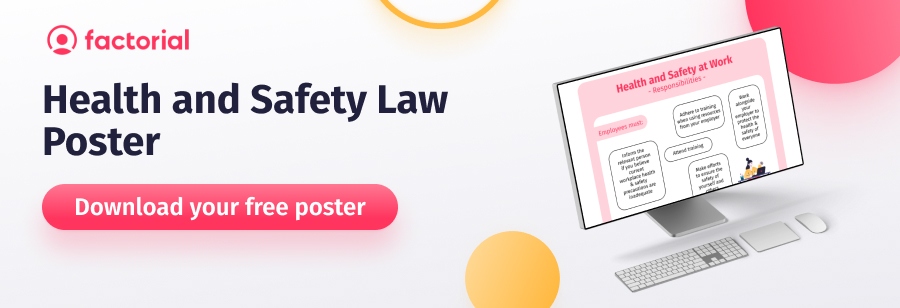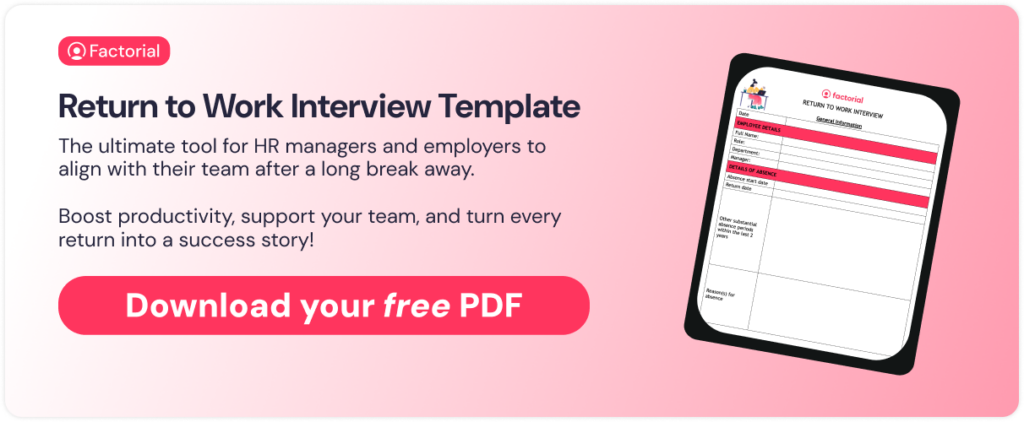There are many rights designed to protect pregnant women and to promote a safe and supportive working environment. These include the right to maternity leave, statutory maternity pay, protection against unfair treatment, reasonable adjustments in the workplace and the right to attend antenatal appointments. Knowing and exercising these rights is crucial to ensure you are treated fairly.
In this article, we’ll cover the current UK pregnancy rights in the workplace to inform and empower individuals who may be pregnant or planning to have a child.
- Pregnant Employee Rights
- Can you Fire a Pregnant Woman in the UK?
- How to Exercise Pregnancy Rights at Work
- Common Challenges for Pregnant Workers
- FAQs
Pregnant Employee Rights
Overall, the UK has a comprehensive legal framework to protect pregnant women. Pregnant employee rights require companies to make reasonable adjustments and provide paid maternity leave, and prevent them from firing pregnant workers.
In fact, a new bill proposed by Labour MP Dan Jarvis seeks to extend legal protections for pregnant employees, adding additional safeguards against discrimination and redundancy. This bill would extend your legal rights to 18 months after your child’s birth. Essentially, it would cover not only the period of maternity leave but also the initial period after returning to work, giving mothers greater job security.
Here is a topline summary of pregnancy employment law in the UK.
Maternity leave and pay
You are entitled to take up to 52 weeks of maternity leave. The first 26 weeks of leave are known as “Ordinary Maternity Leave,” and the remaining 26 weeks are “Additional Maternity Leave.” To qualify for maternity leave, you must give your company at least 15 weeks’ notice before your due date.
During maternity leave, you are entitled to Statutory Maternity Pay (SMP) for up to 39 weeks. While on SMP, payment is as follows:
- For the first six weeks, employees receive 90% of the their average weekly earnings
- For the remaining 33 weeks, employees receive £184.03 or 90% of their average weekly earnings (whichever is lower)
To calculate your employees SMP rate, use this calculate to financially plan ahead.
Protection from discrimination
It’s unlawful for workplaces to discriminate against women on pregnancy, maternity, or childbirth grounds. This includes being dismissed, made redundant, denied promotion or training opportunities or subjected to any other form of unfavourable treatment.
In these situations, companies must make reasonable adjustments to support pregnant women and those returning to work after having a child. Companies can do so by adjusting workloads, providing flexible working arrangements and ensuring a safe and healthy working environment.
Health and safety regulations
Companies must also comply with health and safety regulations to ensure the wellbeing of mother and baby. This includes carrying out a risk assessment to identify any hazards or risks that may be present in the workplace and taking steps to eliminate or reduce them. Risk assessments can be carried out by a competent person in the company or an external health and safety expert.
If removing or reducing risks is impossible, your company must consider alternative work arrangements or suspend you on full pay. You also have the right to paid time off for antenatal appointments and classes, and employers must not unreasonably refuse these requests.
Can you Fire a Pregnant Woman in the UK?
Yes. However, it is against the law to do so based on the pregnancy. Employers should tread carefully here. Pregnancy is one of the nine protected characteristics in the UK meaning the reason for dismissal must be completely unrelated. For example, if a pregnant employee breaches their employment contract, they can be fired regardless. An employer just needs to have clear evidence of the issue behind the termination.
If an employee believes the decision was based on their pregnancy, they can take their employer to an employment tribunal. The case would fall under ‘unfair dismissal’.
The same can be said about dismissing a pregnant employee during probation. It is against the law to extend a probation period based on the pregnancy itself or due to issues relating to the pregnancy, such as time off for doctors appointments or sick leave. The reason for dismissal during probation or for extending probation must, again, be unrelated. An employer’s right to do so should be outlined in the contract of employment for it to be lawful.
How to Exercise Pregnancy Rights at Work
Navigating pregnancy in the workplace can be overwhelming and stressful, but knowing and exercising your pregnancy working rights is crucial.
Know your legal rights
To exercise your pregnancy rights in the workplace effectively, you must clearly understand your legal rights. These rights can vary depending on your employment status, industry and other factors, but there are some basic protections that all pregnant employees are entitled to. These are listed above.
Communicate honestly
One of the most important things you can do to exercise your pregnancy rights in the workplace is to communicate clearly and proactively. Whether pregnant or returning from maternity leave, you must inform your employer of your plans and needs. Discuss your plans positively and constructively and listen actively to any feedback.
Seek support from your people team
If you are pregnant, seeking support from your People Team or equivalent is important. Your People Team can help you to understand your legal rights, communicate with your employer effectively and access any additional support or resources you may need.
Your People Team can also provide information about your employer’s policies and procedures and any additional benefits or accommodations available to you. By working closely with them, you can ensure that you can exercise your pregnancy rights in the workplace to the fullest extent possible.
Common Challenges for Pregnant Workers
Despite legal protections, pregnancy discrimination in the workplace remains a problem with 3 million women forced out of the labour force in 2020 due to childcare responsibilities.
Common forms of discrimination pregnant women might face are:
- Denial of job opportunities or promotions.
- Unfair treatment, including harsher scrutiny or criticism.
- Refusal to make reasonable accommodations, such as modifying work schedules or providing necessary equipment.
- Unlawful dismissal or redundancy due to pregnancy or maternity leave.
- Harassment or bullying.
These experiences can significantly impact your mental and physical health, as well as job security and career prospects. Addressing these legal and cultural issues is important to create a more supportive work environment.
Legal gaps
While existing laws in the UK offer some protection for pregnant employees, gaps still leave many vulnerable to discrimination. For example, the current protections against redundancy only extend throughout maternity leave, leaving many at risk of losing their jobs upon their return to work.
Luckily, the proposed Private Members’ Bill addresses these gaps and supports greater legal protection. It’s a step in the right direction for the rights of pregnant workers.
Encouraging cultural change
Addressing the legal and cultural obstacles to pregnancy rights in the workplace can create a more supportive and equitable environment for all team members. These cultural shifts could mean:
- Promoting workplace policies that support work-life balance and flexible schedules.
- Providing training for teams on how to create a more inclusive and supportive workplace.
- Encouraging open communication and dialogue between teams about pregnancy-related issues.
- Celebrating and normalising pregnancy and parenthood in the workplace.
FAQs
Can companies fire pregnant women?
It is illegal to dismiss a woman because she is pregnant or on maternity leave. However, a pregnant employee can still be dismissed for legitimate reasons unrelated to pregnancy (e.g., misconduct, redundancy, or poor performance), but the employer must prove that the dismissal was fair and not connected to pregnancy.
Can a job deny you for being pregnant?
No, refusing to hire someone because they are pregnant is pregnancy discrimination, which is unlawful under the Equality Act 2010. Additionally, employers cannot ask about pregnancy during interviews or use it as a reason not to offer a job. If an employer does this, they could face a discrimination claim.
Can you dismiss a pregnant woman during probation period?
Employers can dismiss employee on probation for non pregnancy-related reasons such as poor performance. However, they must prove the reason is unrelated to pregnancy as dismissing a pregnant woman due to her pregnancy is considered unfair and discriminatory.




